A trusted name in Melbourne, Australia.
Your local services provider in Melbourne.
Extremely professional and experienced team.
Budget friendly and quality services.
All Tasker is providing affordable residential solar panel installation services across Australia. We stand out of the crowd because of our quality of services and hand on experience in all kind of solar installations.
Top rated by customers and trusted by Australians, We are the best residential solar panel installation company in Melbourne.
352
Projects Completed
Happy Customers
Suburbs we serve
Years In Service
Victorian government is helping people to avail solar panel rebate. All you need to do is, check your eligibility and apply for rebate program. For all kind of installations, you can reach out to industry experts such as All Tasker. We are a Local Solar Panel Installation company in Melbourne.
We offer post-installation support, Workmanship Warranty and 100% customer satisfaction.
Dedicated support ensure durability brings peace of mind for our customers. We Cover issues related to panel efficiency, inverter malfunction, and installation quality. Our comprehensive post-install support help you in troubleshooting, repairs and system optimization.
Our professionals have delivered for more than 270 clients in Melbourne and standing firm in Australian market. We are on a mission to deliver quality and affordable solar panel installation services across Australia. We guarantee the customer satisfaction and we can beat any market quote and help your install solar panels without breaking your bank.
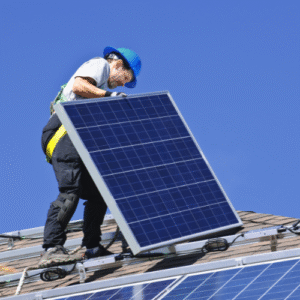
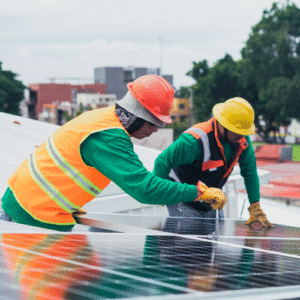
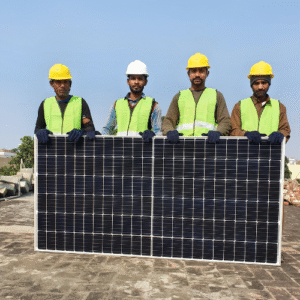
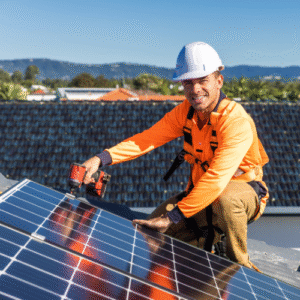

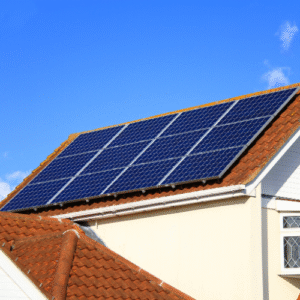
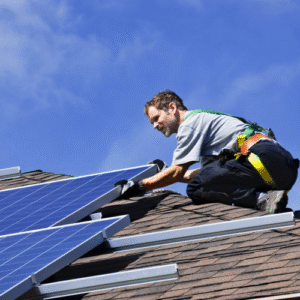
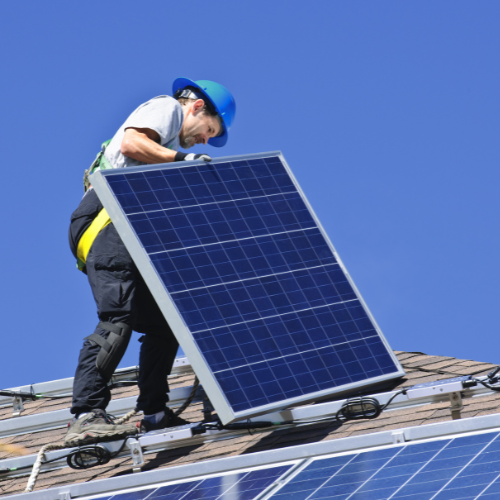
To assess your roof’s sunlight, use a digital solar mapping tool like SunSPOT, which utilizes council data and shading analysis to highlight the sunniest rooftop areas. Alternatively, many installers offer professional solar site assessments to evaluate roof orientation, shade from trees/buildings, and the ideal panel placement. Optimal tilt angles for Melbourne (about 37 degrees) and a north-facing orientation will maximize year-round production.
Most residential solar installations in Melbourne do not require a building permit unless your property is heritage-listed or the panels are highly visible from the street or a public park. For homes under heritage overlays, planning permits from council or Heritage Victoria are necessary. It’s wise to check with your local council for property-specific requirements.
Yes, you can usually expand an existing solar system by adding more panels, especially if your system uses microinverters or you have an oversized inverter. Compatibility depends on inverter size and matching panel specifications. For older systems, expansion may be difficult due to outdated models or differing voltage requirements, sometimes making a parallel new system more practical. Always consult your installer to ensure warranty compliance.
Victoria offers several rebates in 2025, including:
Solar Panel Rebate: Up to $1,400 upfront discount on installation.
Interest-Free Loan: Matching the rebate for eligible systems.
Federal STC Program: Savings of approx. $2,500 on a standard 6.6 kW system.
Feed-in Tariffs: Credits for excess solar fed to the grid (currently minimum 4 cents/kWh).
Solar Battery Loan: Up to $8,800 interest free for battery installs.
Eligibility criteria include income limits, property value, and using authorized products/retailers.
An ideal solar installer in Melbourne should be a licensed electrician, hold SAA accreditation, have completed formal solar installation training, passed practical assessments, and maintain ongoing accreditation and insurance coverage.
In Melbourne, a well-placed solar system will produce an average of 3.6 kWh per kW installed per day throughout the year. For a typical 5 kW system: 5 kW×3.6 kWh/day=18 kWh per day5kW×3.6kWh/day=18kWh per day. To estimate savings, multiply the daily output by the local electricity rate (approximately $0.28–$0.35 per kWh), deducting for any feed-in tariff from exported energy. Season and roof orientation can cause monthly variation, with summer peaks exceeding winter by up to 2.9 kWh/day.

